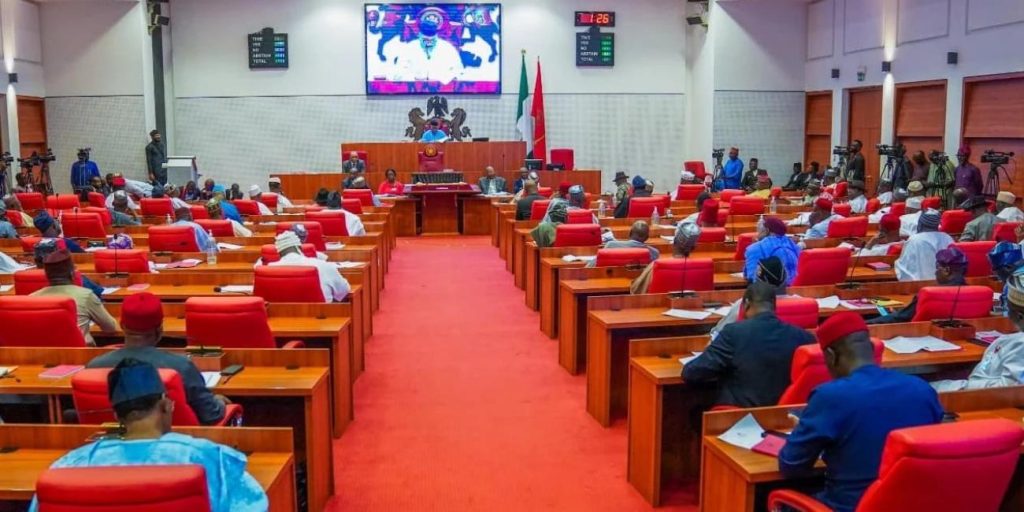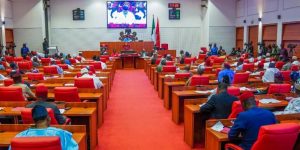Nigerian Senators’ Monthly Earnings of N1 Million Revealed by Revenue Commission Amidst Workers’ N70,000 Minimum Wage

Nigerian Senators’ Monthly Earnings of N1 Million Revealed by Revenue Commission Amidst Workers’ N70,000 Minimum Wage
The Revenue Mobilisation Allocation and Fiscal Commission (RMAFC) has disclosed that Nigerian senators earn a monthly salary and allowances totaling N1,063,860, dwarfing the recently signed N70,000 minimum wage for workers. This revelation was made by RMAFC Chairman M.B. Shehu on Tuesday, responding to claims made by former Senator Shehu Sani.
The breakdown provided by the commission reveals that each of Nigeria’s 109 senators earns a Basic Salary of N168,866.70. Additionally, they receive allowances for various expenses, including Motor Vehicle Fuelling and Maintenance (₦126,650.00), Personal Assistant (₦42,216.66), Domestic Staff (₦126,650.00), Entertainment (₦50,660.00), Utilities (₦50,660.00), Newspapers/Periodicals (₦25,330.00), Wardrobe (₦42,216.66), House Maintenance (₦8,443.33), and Constituency Allowance (₦422,166.66).
Shehu’s disclosure came in response to Senator Sani’s allegations that senators receive an additional N13.5 million monthly for running costs, above the N750,000 set by the Commission. Shehu clarified that while RMAFC sets remuneration guidelines, it lacks constitutional authority to enforce them. He added that some allowances are paid regularly with the basic salary, while others are disbursed as needed.
“For example, Furniture Allowance (N6,079,200.00) and Severance Gratuity (N6,079,200.00) are paid once per term, while the optional Vehicle Allowance (N8,105,600.00) is offered as a loan, to be repaid before leaving office,” Shehu explained.
The chairman also highlighted that housing benefits for public and legislative officers have been restricted to the President, Vice President, Senate President, and Speaker of the House of Representatives, marking a departure from previous practices.
In a related development, former President Olusegun Obasanjo recently criticized lawmakers, alleging that they set their own salaries. However, the House of Representatives has denied these accusations, with Deputy Spokesperson Philip Agbese calling Obasanjo’s claims false and misleading. Agbese emphasized that members of the House are driven by patriotism and a commitment to serve the Nigerian people, rather than self-interest.
Meanwhile, President Bola Tinubu has signed the N70,000 National Minimum Wage Amendment Bill 2024 into law, following negotiations between the government, the private sector, and organized labor. Initially, the government proposed a new minimum wage of N62,000, which was rejected by the Nigeria Labour Congress (NLC) and the Trade Union Congress (TUC). Eventually, a compromise was reached at N70,000, with an agreement that wage reviews in the country would now occur every three years, instead of every five years.


